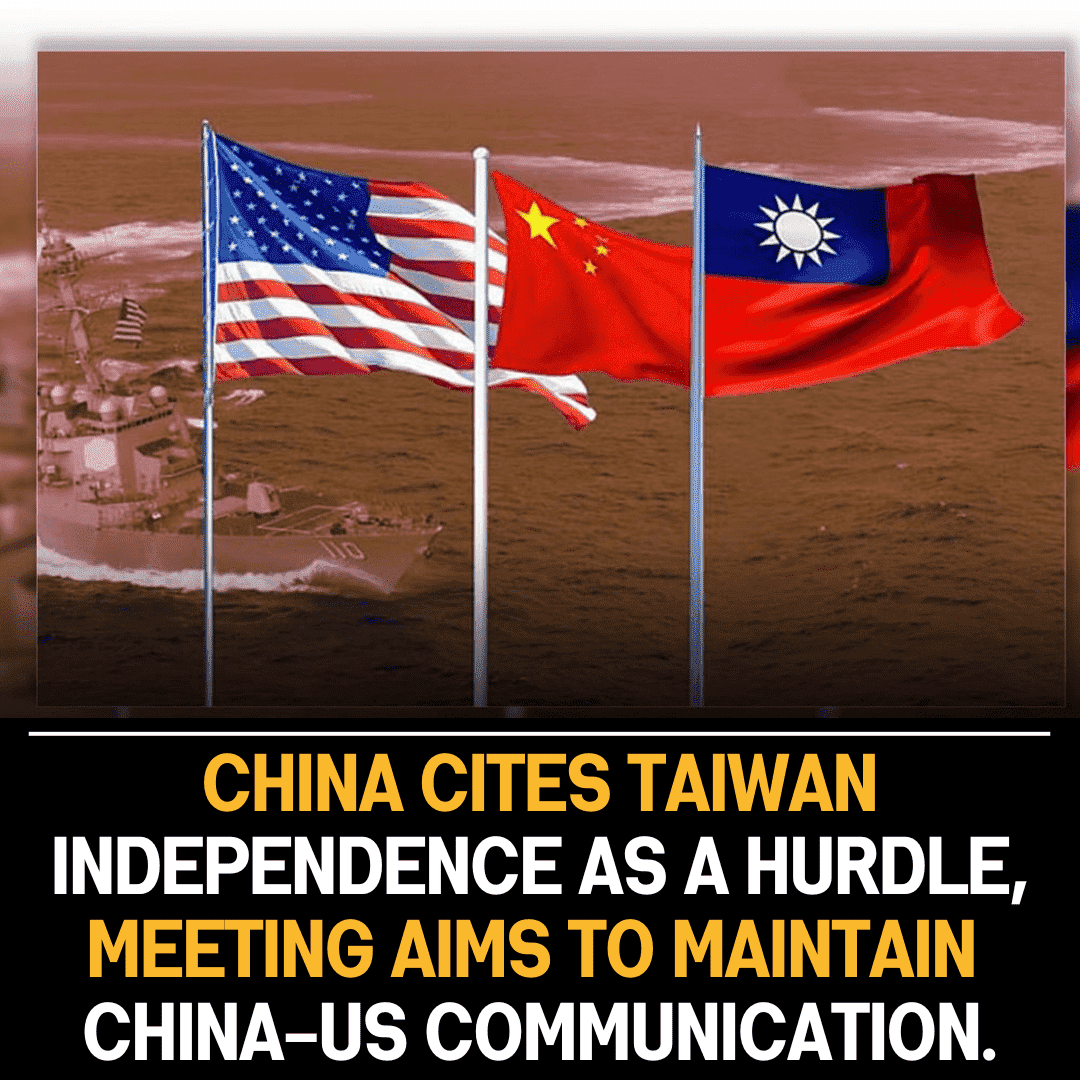In a diplomatic discourse fraught with tension, China has explicitly flagged Taiwan’s pursuit of independence as a significant barrier to bilateral relations. The focus on this sensitive issue took center stage during a crucial meeting between China’s Foreign Minister Wang Yi and the U.S. National Security Advisor Jake Sullivan. The primary agenda of the meeting revolved around the maintenance of communication channels between the two nations amid escalating tensions over the Taiwan question.
China’s assertion that Taiwan’s push for independence hinders relations underscores the longstanding and sensitive nature of the Taiwan issue. The Chinese government views Taiwan as an integral part of its territory, and any move towards independence is met with strong opposition. This position has been a consistent source of tension in cross-strait relations and has the potential to impact broader international dynamics.
The meeting between Wang Yi and Jake Sullivan sought to address the communication breakdown that often accompanies disputes over Taiwan. Both sides recognized the importance of maintaining open channels to prevent misunderstandings and miscalculations that could escalate tensions. The emphasis on communication reflects a pragmatic approach to managing differences while preventing an outright confrontation.
The delicate nature of the Taiwan issue requires careful navigation to avoid unintended consequences. China’s flagging of Taiwan independence as a barrier to relations serves as a diplomatic warning, signaling the high stakes involved. It reinforces China’s commitment to its territorial integrity and sends a clear message to the international community about its red lines.
The U.S. stance on Taiwan has been a nuanced balancing act, acknowledging the One-China policy while maintaining unofficial relations with Taiwan. The meeting between Wang Yi and Jake Sullivan reflects the ongoing challenge of managing this delicate equilibrium. The United States has a strategic interest in the stability of the region and seeks to prevent any unilateral actions that could disrupt the status quo.
The dialogue also touched upon broader issues, including regional security and global governance. The need for collaboration on common challenges, such as climate change and the ongoing pandemic, was acknowledged. However, the shadow of the Taiwan issue loomed large, underscoring the complexity of U.S.-China relations.
As tensions persist, diplomatic engagements like the one between Wang Yi and Jake Sullivan become critical in preventing the situation from spiraling out of control. Both sides have a shared interest in preventing conflict and maintaining stability in the Asia-Pacific region. Effective communication channels serve as a crucial mechanism for managing differences and finding areas of cooperation amid the broader geopolitical landscape.
In conclusion, China’s assertion regarding Taiwan independence as a barrier to relations adds another layer of complexity to the already intricate dynamics between China and the United States. The meeting between Foreign Minister Wang Yi and National Security Advisor Jake Sullivan underscores the necessity of clear communication to navigate sensitive issues and prevent unintended escalations. As both nations grapple with their divergent positions on Taiwan, the diplomatic tightrope they walk requires deft handling to ensure regional stability and international cooperation.









